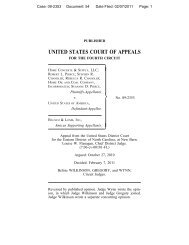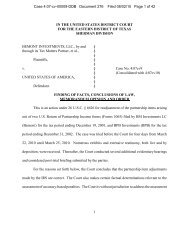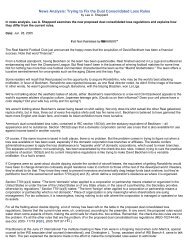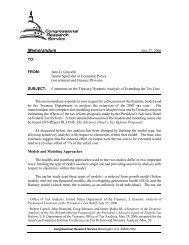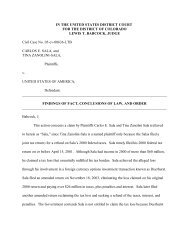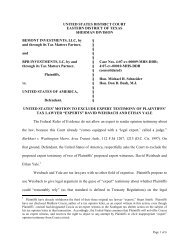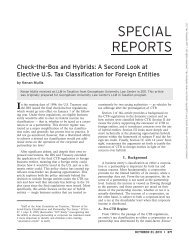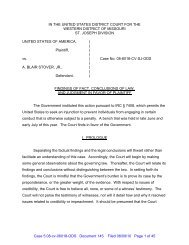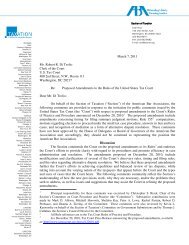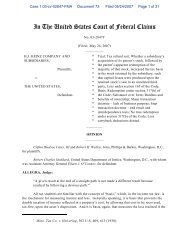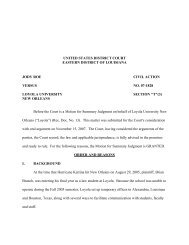1 TESTIMONY OF PROF. EDWARD D. KLEINBARD HEARING ...
1 TESTIMONY OF PROF. EDWARD D. KLEINBARD HEARING ...
1 TESTIMONY OF PROF. EDWARD D. KLEINBARD HEARING ...
- No tags were found...
Create successful ePaper yourself
Turn your PDF publications into a flip-book with our unique Google optimized e-Paper software.
fund shares). 10It is intuitively appealing to argue that all of this “trapped” cash is lyingfallow, as if it were buried in a backyard in Zug, and that if only a repatriation holiday orthe like were bolted onto a tax reform package, the U.S. economy could be set tohumming again.There are a great many answers to this argument. One is that nothing is trapped atall: firms choose to leave their cash offshore because the costs to them of doing so arelower – much lower – than paying the U.S. tax that is part of the basic deal to which theysigned up when they set their foreign structures in place. Another is the evidence from the2004 tax repatriation – a rare natural experiment in alternative tax policies – that showedthat the large cash repatriations that followed from that tax holiday in net terms fundedshareholder dividends and stock buy-backs, not structural investments in the U.S. realeconomy. 11I want to make some different points. The extraordinary sums of cash heldoffshore by some U.S. firms – $102 billion, in the case of Apple Inc. – is the telltale markof successful stateless income strategies in operation. But that cash is not lying fallow.No Chief Financial Officer of a U.S. firm invests the firm‟s surplus offshore cash (that is,cash not comprising working capital of foreign operations) in anything other than U.S.dollar investments, because nonfinancial firms are not in business to gamble on currencymovements. In turn, every U.S. dollar fixed-income asset – a U.S. Treasury note, a bankaccount, an interest in a money market fund – held “offshore” is on the other side a dollarliability of some U.S. person. 12 This simply means that the money is at work in the U.S.economy. It might not have found its absolute optimal home (but see the nextparagaraph), but it is financing the U.S. debt, or bank loans to U.S. businesses, or the like.Moreover, as a practical matter “offshore” funds are easily repatriated tax-freetoday. Apple Inc. just reminded us all how to do so. It recently borrowed $17 billion in10 One recent empirical study of this question is Jennifer Blouin, Linda Krull and Leslie Robinson,Where in the World Are “Permanently Reinvested” Foreign Earnings?, Sept. 2012, available athttp://papers.ssrn.com/sol3/papers.cfm?abstract_id=2154662.11 The history of the 2004 experiment and some of the research results from studying it aresummarized in Edward Kleinbard and Patrick Driessen, A Revenue Estimate Case Study: TheRepatriation Holiday Revisited, 120 Tax Notes 1191 (Sept. 22, 2008).12 Obviously there can be intermediary institutions along the way.13



